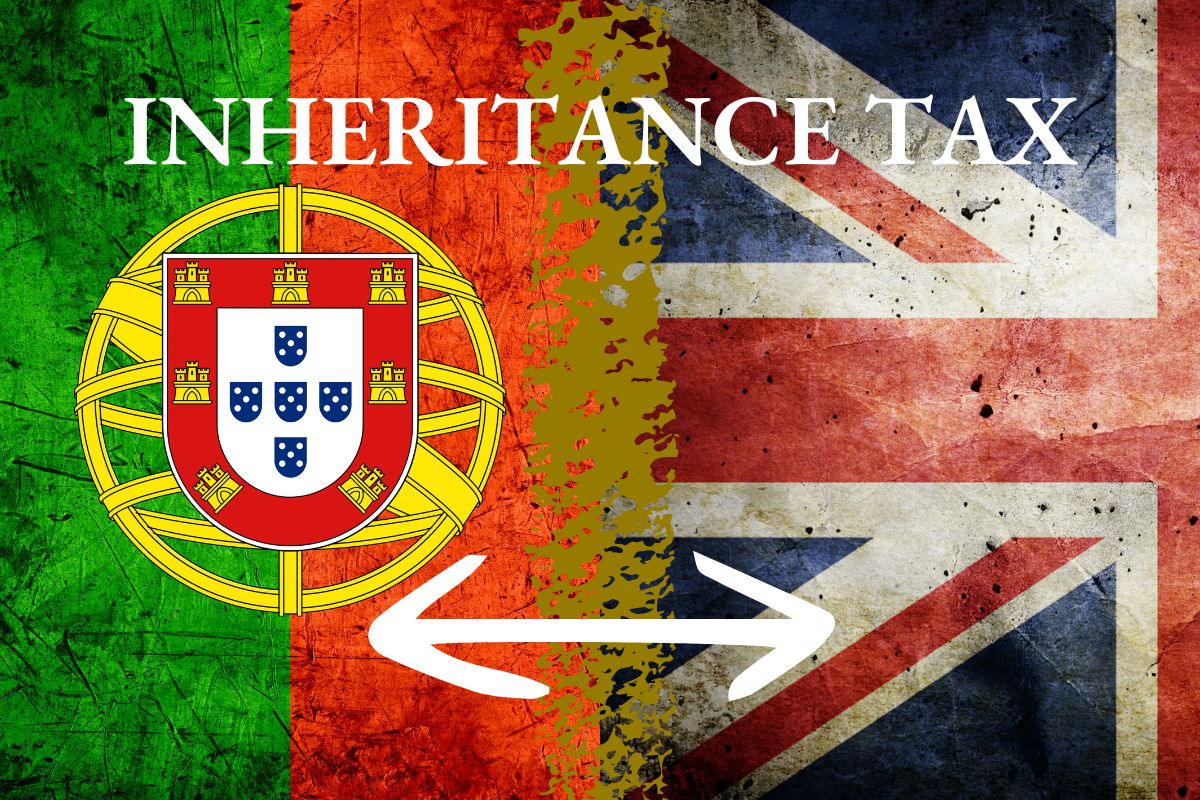Recent times have been tough for bond prices due to rising interest rates and inflation concerns, but there are signs that the bond market could now offer some interesting opportunities for investors.
Are bonds back?
By Portugal team
This article is published on: 27th October 2023

The bond market is much larger than the stock market with figures from Morningstar valuing the market at approx. $300 trillion compared with the stock market at approx. $124 trillion, so it is a significant market for investors to understand.
What are bonds?
A bond is simply a loan that an investor makes to a government or company in return for a set interest rate, known as a coupon. For example, if you buy a 10-year 5% US Treasury bond for $100, you are lending $100 to the US government who will pay you $5 each year for 10 years and at the end of the term, you get your original capital of $100 back.
Investors like the predictable income and the relative stability of bond investments. They also complement shares which tend to be more volatile e.g. when share prices fall and investors are nervous, they often flock to the relative safety of bonds, which pushes up the value of bonds to compensate.
There are many bonds to choose from, each with different levels of risk, and therefore return expectations. For example, instead of buying a US treasury bond, you could buy a bond in Apple or BP and because there is more risk in lending to a company than there in lending to the US government, you can expect a higher coupon of say 6% or 7% to compensate for this increased risk.
Recent market issues – an exceptional period
In simple terms, traditionally, the prices of bonds move in an opposite direction to interest rates so when interest rates rise, bond prices fall.
Given that interest rates globally have been steadily increasing for the last couple of years, bond prices have naturally suffered.
One unusual phenomenon we have seen is that stock markets have also performed relatively poorly so we have seen bonds and stocks falling at the same time. This is a very rare event which has only happened three times in the last 45 years and many commentators believe the normal diversification and inverse relationship between bonds and shares will resume going forward.
Last week, we saw that UK 30-year bond yields rose to their highest level since 1998 and similarly, US Treasury yields are at a 16-year high, despite high interest rates. So why is this?
From a UK perspective, the recent mini-budget included tax cuts and increased spending, something that will need to be paid for through increased borrowing. The government does this by selling more bonds. But more government debt without the economic growth to support it spells increased risk for the economy and it is this that triggered a large-scale sell-off of UK bonds, reducing the price and therefore increasing yields.

Looking forward
There are three supporting factors for a positive outlook for bonds:
1. As bond prices have fallen, the yield available to investors has increased substantially which supports bonds and the outlook for prices going forward. As a result, bonds may provide an attractive level of income, and at relatively low risk levels, which has not been seen for many years.
2. Figures from Vanguard, the world’s second-largest fund manager, show that bonds typically outperform cash in the three years following peak rate hikes dating back to 1980. The Federal Reserve, Bank of England and European Central Bank have all signalled interest rates are close to or have peaked already. The consensus is therefore that interest rates and yields should fall over time, and as prices move opposite to interest rates, bond prices should rise.
3. Bonds have historically performed better than shares and cash during recessions. With concerns still lingering about economies entering recessions, bonds could again offer value in a portfolio.
Of course, we always have to point out that history does not always repeat itself and things may happen differently this time, but the alignment of several tailwinds for bonds is a positive signal.
When a bond is not a bond
Please note that there are also tax structures known as “investment bonds” which are not to be confused with the bonds we’ve discussed in this article. Investment bonds are a form of tax wrapper and they are often used by residents of Portugal (as well as being efficient from a UK tax perspective) to hold and manage investment portfolios.
Financial seminars on the Algarve
By Portugal team
This article is published on: 17th October 2023

Even with diligent preparation and thorough planning comes a mild sense of apprehension as the big moment approaches.
How many guests will show up?

It was then with quiet satisfaction, and some relief, that Spectrum’s Debrah Broadfield and Mark Quinn welcomed a steady stream arrivals to their financial planning seminars in the Algarve this week.
At two venues over two consecutive days, 80 guests attended these events for a timely update on recent changes to the investment and tax planning opportunities (currently still) available to expatriates living in Portugal.
With explanations, practical examples, and responses to audience questions, our hosts highlighted how to invest securely, successfully and tax-efficiently, adding that professional guidance is (of course) essential for achieving the most favourable outcomes, and avoiding potentially expensive pitfalls.
Richard Flood and Lorraine Reddaway from RBC Brewin Dolphin complemented these presentations with an insight into investor psychology and the behavioural impact of emotional decisions on investment returns – perhaps unsurprisingly, inexperienced investors are often poor decision-makers when it comes to wealth management.
RBC Brewin Dolphin’s approach to stock selection and portfolio construction provided reassurance on the value of professional asset management.
Both seminars were well attended, with many guests requesting meetings for immediate help and advice.
Our team in Portugal are also running two workshops in November:
8th November 2023
Boavista Golf & Spa,
Quinta da Boavista, 8601-901 Lagos
10am – 1pm (with a coffee break)
9th November 2023
Magnolia Hotel,
Estr. Da Quinta Do Lago, 8135-106, Almancil
10am – 1pm (with a coffee break)
Covering a wide range of topics, our workshops aim to give you the knowledge to make good choices in all areas of financial planning, taxation and organising yourself for life in Portugal.
With an informal round table format, we will be discussing issues such as:
- How different types of pensions are taxed in Portugal
- Where tax should be paid on different types of pension income
- Double taxation and how to avoid it
- Drawdown options and the tax implications
- UK pension changes: LTA abolition, impact on taxation
- Tax planning opportunities: Pre-April 2024 planning window
- QROPS & QNUPS: Do you really need one or should you keep your UK pensions?
- How to pass on your pensions and the implications for your beneficiaries
- Open Q&A throughout
Tax & financial seminars in Portugal
By Portugal team
This article is published on: 21st September 2023

Are you an expatriate living in Portugal and looking to understand
more about your tax and financial situation?
Join us, and our panel of guest speakers, for informed guidance on Portuguese resident tax and financial planning opportunities, commentary on investment markets and to meet like-minded people in your local area.
10th October 2023
Magnolia Hotel
Estr. da Quinta do Lago, 8135-106 Almancil
10am – 1pm
11th October 2023
Boavista Golf & Spa
Quinta da Boavista, 8601-901 Lagos
10am – 1pm



Engage with our chartered financial planners and tax advisers
- Demystifying jargon: Understand key terms like residence, domicile, NHR, visas, day counting, and where and to whom taxes should be paid
- Avoiding costly pitfalls: learn from common mistakes and discover strategies to prevent them
- Real-life case studies: Business and property sales, personal investments, UK ans offshore pensions, inheritance tax, domicile and personal taxation.
- Investment fundamentals: Understand risk and volatility, investor psychology, tips and traps of investing and portfolio building
- Interactive Q&A: Have your questions answered during our open session
Experience a unique opportunity to ‘look over the shoulder’ of a fund manager with RBC Brewin Dolphin
- Find out how they create and build portfolios: the principles, processes, data and tools
- Discussion: current markets, trends and forecasts
- Interactive Q&A: ask anything during the open Q&A

Sign up for the seminars below
Tax planning around property
By Portugal team
This article is published on: 15th September 2023

Even if you are a Non Habitual Resident (NHR) with preferential tax status, UK and Portuguese property will remain taxable on both income and capital gains. However, there are certain planning opportunities you can tax advantage of in Portugal and the UK.
UK property planning
When selling UK property, you can deduct expenses associated with buying and selling the property, including professional fees and fees incurred on the transfer of property, such as stamp duty. You can also add any expenses incurred in enhancing the property to your base cost.
If the property has ever been your principal private residence (PPR) you can reduce or even eliminate the capital gains tax with main residence relief. This ensures that any period during which the property was your PPR is exempt from tax. For example, if you lived in the property for 5 years out of a total ownership period of 10, then only 50% of any gain would be subject to tax.
The property is also considered your PPR for 9 months after leaving the property so you can increase your tax-free ownership period.
UK allowances available
Even if you have left the UK, as a UK/EEA national you can retain your annual capital gains tax (CGT) allowance to offset any taxable gain, although this is reducing – the current allowance is £6k but falling to £3k from the 2024/25 tax year. If you hold property jointly with your spouse/civil partner, you can combine your CGT allowances (and income tax allowances if letting).
Timing is important
If possible, selling when you have not sold other assets will ensure your full CGT allowance can be set against the property gain.
If you are still UK tax resident you can also:
- time the sale when your income level is low, as your overall income level determines which CGT band will apply (18% for basic rate tax payers and 28% for higher and additional rate), and/or
- higher rate tax payers can potentially lower their tax bands via a pension contribution or donation to charity.
Non-Resident Capital Gains Tax (NRCGT)
If you are a Portuguese tax resident, you are able to benefit from NRCGT which is a UK tax concession which states that only the increase in value of property after April 2015 is taxable e.g. if you purchased a property in 2000, any increase in value between 2000 and 2015 is not taxed. This can substantially reduce your tax bill and wash out gains, and as stated earlier, you can still retain your annual CGT allowance.
If you also qualify for NHR there would be no tax in Portugal, which under normal circumstances would otherwise be taxed at progressive rates.
A further planning angle for those with NHR is that, if properties are held within a company, any dividend taken would be free of tax.
You may find the HMRC link useful when calculating your likely liability https://www.gov.uk/tax-sell-property/work-out-your-gain

Portugal property planning
Properties purchased after January 1989 are subject to capital gains tax on 50% of the gain. Property purchased before this date is not subject to CGT. Do note, NHR does not have any effect on the taxation of Portuguese property.
Some expenses are deductible, such as the buying and selling costs. In addition, inflation relief is available in Portugal if the property is held for more than two years.
It is possible to mitigate or even eliminate the taxable gain on a Portuguese main home by:
- Reinvesting in another property within the EU;
- Reinvesting in an approved investment structure; or
- A combination of the two e.g. if you sell a property for €1m, you can downsize into a smaller property for €500k and put the balance of €500k into an approved investment structure. This investment structure can then provide a tax-efficient income for life.
The amount that must be reinvested is the net sale proceeds, not just the gain. Any amount not reinvested is taxable under the normal rules.
There are nuances around these rules so please always seek professional advice. There are also complicated scenarios when selling property held by companies and specialist advice and calculations are required.
The dilemma: cash or investment markets?
By Portugal team
This article is published on: 12th September 2023

With rising interest rates, we have seen banks offering interest rates in excess of 4% or even higher with 1-year fixed terms. This coupled with the perceived risk of investment markets and the constant stream of negative news has left many wondering whether staying in cash is best.
Short term goals
Cash certainly has a place as an emergency “buffer” to allow for life’s unexpected events, and it is also sound financial planning to set aside sufficient for your short-term needs. Likewise, holding cash as part of an investment portfolio is important and it can help reduce the effects of volatility often seen in markets.
Cash as a long-term investment
Interest rates offered by banks to customers rarely beat inflation, so using this as a long-term savings strategy is not ideal.
Even with rising interest rates, the returns from cash are still negative when you consider that inflation currently sits at 7.9% in the UK, so investors are not getting any real returns. As an example, the negative effect of a modest 2% inflation on £100,000 over 10 years is £82,035 and £67,297 over 20 years.
However in the longer term, interest rate cuts are likely as the Bank of England is starkly aware that keeping interest rates high risks triggering a recession and destabilising the UK housing market. Central banks globally are also now close to pausing and then reversing recent rate hikes.

Protect yourself against inflation
Investing in high-quality company shares has been shown to offer inflation protection. Looking at long-term figures, Credit Suisse show that over a 123-year period starting in 1900, shares in developed equity markets have generated returns of 5.1% above inflation and emerging equity markets have achieved 3.8% over inflation.
The Credit Suisse figures also show that shares have outperformed cash (and bonds) in every one of the 21 countries its data covers over that 123-year period. This is quite remarkable given this period covers two world wars, two global pandemics, the great depression, the 2000 dot-com bubble, and the 2008 global financial crisis.
Opportunities elsewhere
Falling interest rates will provide opportunities elsewhere. For example, bond prices move in the opposite direction to interest rates so a future fall in interest rates is likely to result in capital gains on bonds, or holding shares allows investors to not only benefit from the increase in share price over time but income from dividends too.
If we look at the top 100 shares in the UK, analysts are expecting a dividend yield of 4.1% this year and 4.4% in 2024 and with the possibility for share buybacks added into the mix, this could be as high as 6% for 2023.
Tax considerations
Always consider the net interest rate you will earn. For example, a relatively attractive rate of 5% becomes a somewhat mediocre return of just 3.6% for a standard Portuguese tax resident who must pay 28% tax.
Also be cognisant that some of the more attractive rates being offered by banks in Guernsey and Jersey will have a higher tax rate applied of 35%, even if you are a Non-Habitual Resident.
The solution – balance
We believe a balanced approach of cash and investments makes most sense. The split however really comes down to your short- and long-term goals.
In short, cash is still king for short-term needs but for meeting longer-term income and growth objectives, stack the odds in your favour by using a sensible and well-diversified portfolio of shares, bonds and property. Coupling this with effective tax planning can lead to even more savings.
Lastly, Warren Buffet’s advice as one of the world’s most successful investors is, “The one thing I will tell you is that the worst investment you can have is cash. Cash is going to become worthless over time but good businesses are going to be worth more over time”.
Pensions in Portugal
By Portugal team
This article is published on: 13th July 2023

Taxation of pensions in Portugal is complicated. The type of pension, how it is funded and how it is paid out can affect the rate of tax you pay and it becomes even more confusing when you have to consider potential taxes in the source country. Mark and Debrah examine the rules on taxation and the steps you should take to save your hard-earned cash.
Over the years we have seen different ways of reporting pensions in Portugal. This is because the Portuguese rules do not quite fit the complex UK pension rules and there is also a lot of confusion, even amongst professionals, about the nature of pensions. Sometimes this results in a favourable outcome, but in other instances, we have seen people paying more tax than they need to.
What is a pension in Portugal?
Portugal views a pension as a regular series of income payments. This can get confusing as from a UK context, pensions can be paid out as a series of income payments or lump sums.
Portuguese law does not specify a time period for payments to be deemed a pension, but it is generally considered amongst professionals that payments made on predetermined dates and at predetermined amounts would be deemed pension income.
Ad hoc payments could be deemed lump sums and would receive different tax treatment (as long there were no employer contributions). Here, the growth element is taxed at 28% and the capital is returned free of tax. There is a tax reduction of 20% after 5 years and 60% after 8 years. It is best to speak to your accountant on reporting options as they will be performing your submission.
UK Government pensions
These pensions are acquired by working for the state. In the UK these are generally armed forces, local authority and some types of NHS pensions (a full list can be found on HMRC’s website).
These are always taxable in the source country and tax is deducted at source. Portugal does not tax these pensions, but they must be reported in Portugal, and they do count when assessing your other taxable income in Portugal.
All other pensions are taxable in Portugal (not the UK) and each person has an annual deduction of €4,104 against pension income
UK state pension
The UK state pension is taxable in Portugal only. No tax is due in the UK. The pension can be paid out free of tax to you from the UK once HMRC are satisfied you are no longer a UK resident. Otherwise, UK tax will be deducted at source and you must reclaim this.
For Non-Habitual Residents (NHR), the tax due in Portugal is 10% (unless you have pre 31st March 2020 NHR, in which case it is 0%). For normal residents, scale rates of tax apply which for 2023 are 14.5% to 48%.
Occupational pensions
These pensions are funded solely by an employer, or by employer and employee contributions from pre-tax income.
If you can determine the split between employer and employee contributions, the former are taxed at the prevailing rate and the latter can receive 85%/15% treatment i.e. 85% is returned free of tax and 15% is taxed at the prevailing rate. If this cannot be determined, the whole amount will be taxed at the prevailing rate of tax.
For NHRs, the rate is 10% (or 0% for pre-2020). For non-NHRs, it is the scale rates of tax.
Personal pensions
Where a personal pension was solely funded by personal contributions made with after-tax income, then it is possible to apply long-term savings taxation rules which can be more favourable. Here, only the growth element of any income received is taxed at 28%, with tax reductions after years 5 and 8 resulting in effective rates of tax of 22.4%and 11.2% respectively.
If there are contributions made in resect of employment activity e.g by an employer or via pre-tax income, then scale rates are likely to apply to the full pension, unless you can distinguish between the contributions.

What about the 25% PCLS?
Portugal does not recognise the UK concept of a 25% pension commencement lump sum. So, if your retirement plan is to take this, then it is best to do it whilst UK tax resident. If taken once resident in Portugal, the above tax rates will apply.
Get your UK pension paid out to you gross
Firstly, you must complete a ‘DT Individual’ form. This is available online from HMRC. You then submit this form to HMRC with a proof of residency in Portugal certificate, which you can obtain from the finances portal. You will need to take an income from the pension to trigger the process, which is likely to be emergency taxed so just take a small amount. Once your provider receives notification of a ‘nil rate tax code’ from HMRC they will pay your pension out to you without deducting UK tax.
What else should you be aware of?
The UK government recently changed the ‘lifetime allowance’ (LTA) rules. Contrary to the common belief that this has been ‘abolished’, the rules actually state that no charge will apply for 2023/24. This difference is important for those thinking of taking their pension benefits during this window of opportunity.
Previously the LTA was capped at £1,073,100. After which pension savings suffered a tax charge of 25% if taken as income or 55% if a lump sum. Lump sums were taxed more heavily as it assumed that 25% represented the LTA excess charge and a further 25% represented an income tax charge. The new rules remove the 25% LTA excess charge but not the 25% income tax charge, so when taking amounts above the LTA as lump sums, a 25% deemed income tax charge will still apply.
Either way, this provides a unique opportunity for those with large pension pots. This opportunity however is not guaranteed for the future as commentators believe that a Labour win in the next election will likely see this reinstated.
Lastly, currently, assets within a pension can be passed down free of UK inheritance tax (IHT) and they have become crucial planning tools for UK domiciles. Similarly, income tax is not payable by beneficiaries if the pension holder dies before age 75 (tax is payable if death occurs after 75).
There have been ever-increasing murmurings of the introduction of inheritance tax applying to pensions and income tax being imposed on beneficiaries where death occurs before age 75. The most recent and serious being at the end of 2022 when the Institute for Financial Studies published a report recommending changes to the rules and stating that these changes could bolster government funds by £1.9 billion.
It could be an opportune time for you to review your pension planning with this and your beneficiaries in mind.
Investment options for Portuguese residents
By Portugal team
This article is published on: 12th July 2023

You are probably quite au fait with your home country’s investment structures, options, and practices, but what happens when you move abroad? Just because your investments are tax efficient in one country does not mean that the tax advantages will transfer to another.
Mark Quinn and Debrah Broadfield look at the taxation of typically held investments in Portugal and what options are open to residents looking to legally shelter from taxation.
Bank accounts
All bank interest is reportable and potentially taxable in Portugal, irrespective of where the account is located or if you use it or not.
If you have Non-Habitual Residence (NHR), interest earned on foreign accounts is tax-exempt, unless the account is held in a blacklisted jurisdiction such as Guernsey, Jersey, or the Isle of Man, in which case it is taxed at 35%. So, if you are still holding large sums in these ‘tax havens’ you should consider restructuring this.
If you are a non-NHR, all bank interest earned on foreign accounts is taxed at 28%. Similarly, interest from Portuguese bank accounts is always taxed at 28%, irrespective of your NHR status.
Dividends
We usually see individuals with dividends paid from their own companies, directly held shares, or investment portfolios. This is a great source of income if you are a NHR as these are tax-free in Portugal during the 10-year period.
It is worth thinking about what you are doing with the income once received. If you are not spending it all and it is accumulating in a bank account earning little or no interest, you should consider investing this in a tax-efficient manner to get your money working for you.
For normal residents, dividends are taxed at 28% but there is the potential for tax savings if you can restructure.
Property
Foreign-sourced property income is reportable in Portugal but is tax-exempt during NHR. Post-NHR, this income is taxed at scale rates (up to 48% plus solidarity tax at 2.5%/5%) with a credit given for tax paid in the country where the property is located (if there is a double tax treaty).
NHR does provide a unique tax-saving opportunity when selling a foreign property. Usually, 50% of any gain on sale is taxed in Portugal at scale rates, but if sold during the NHR period there is no tax to pay. Do note however that tax may still be due in the country where the property is located.

Striving for tax efficiency
One of the most common and tax-efficient ways to save is within an ‘offshore investment bond’. Such structures are recognised throughout most of the EU and in the UK.
Unlike a standard investment portfolio, that attracts capital gains and income tax as it arises, gains within an investment bond grow free of both income and capital gains tax. This is also known as ‘gross roll up’ and works in a similar way to a pension or a UK ISA.
The other main advantages over directly held investments are:
– You can control the timing of taxation. With standard investment holdings, when income or dividends are produced, they are deemed paid (whether actually paid out to you or not) and are taxable on an annual basis. With a tax-sheltered structure, income and gains are only taxable when a withdrawal is made.
– Withdrawals are very tax efficient. Withdrawals are split into capital and growth and tax is only payable on the growth. Although the tax rate on the growth element starts at 28%, you enjoy a 20% tax reduction after 5 years and a 60% tax reduction after 8 years.
It is worth knowing that this preferential tax treatment is enjoyed by both NHRs and standard Portuguese tax residents. And because the structure becomes more tax efficient over time, these are great long-term planning tools for those with NHR who intend to remain in Portugal once they are subject to the standard rates of tax post-NHR, or for long-term residents without NHR.
– These structures offer a unique tax planning opportunity for those who might return to the UK in the future. Under UK rules, only investment growth generated whilst resident in the UK is taxable. So, for those who have spent many years abroad in Portugal, this can create the opportunity for very advantageous tax planning on a return to the UK.
Lastly, choosing the right jurisdiction and provider is essential to ensure compliance in Portugal. You will also want to avoid jurisdictions with withholding taxes and bonds located in tax havens, as these are punitively taxed at 35%.
Taxes and property in Portugal
By Mark Quinn
This article is published on: 15th June 2023

Many expats will be surprised to discover that even when selling their main home in Portugal, Capital Gains Tax (CGT) applies.
They may also not realise that when selling secondary or rental properties, tax is likely to be due in both Portugal and the country where the property is located. So, what do you need to know?
CGT
Portuguese residents are subject to CGT on their worldwide property gains. On the sale of Portuguese property, the tax treatment is the same for Non-Habitual Residents (NHR) and non- NHRs; 50% of the gain is added to your other income in
that tax year and taxed at scale rates.
For overseas property, there is no tax due in Portugal for NHRs but there is tax due (in the same manner as above) for non-NHRs. CGT is also likely due in the country where the property is located.
Can you mitigate any tax?
Despite the potential for eye-watering tax levels, some reliefs are available if the property you are selling is your home. The two mentioned reliefs can be used in isolation or conjunction.
- Main residence relief: You can mitigate all (or a portion of) the CGT by reinvesting the sale proceeds (not just the gain) into another property in the EU or EEA. Any amount not reinvested is taxed
- Reinvestment into a qualifying savings structure: This is a relatively recent relief and is particularly advantageous for those wishing to downsize (and therefore will not fully reinvest the sale proceeds), or for those moving back to the UK or elsewhere outside of the EU/EEA. There are strict criteria for qualification and we can advise on this area
NHR tax opportunity
For those with overseas property portfolios, selling these during the 10-year NHR period is much more tax efficient as the gain is exempt from CGT in Portugal. But hat about the tax due in the country the property is located? Let’s look at UK property as an example.
The UK only applies CGT to gains accumulated since 6th April 2015 and you will also have your annual UK CGT allowance to deduct (additional reliefs may also apply depending on your situation). If you bought an investment property in joint names in 1992 for £100,000 and it was sold today at £1m, ordinarily tax would be due on the £900k gain. But selling this as a non-UK resident, and assuming linear growth, you only pay tax on the gain since April 2015 i.e. £210,000.
You can effectively ‘wash out’ a large part of the gain simply by selling as a Portuguese tax resident and generating cash to fund your lifestyle.
Portugeuse residency and taxes
By Mark Quinn
This article is published on: 12th June 2023

Residency, domicile, visas and non-habitual residency… it can be confusing. Mark Quinn and Debrah Broadfield of the spectrum IFA group explain NHRs generous tax breaks, tax planning opportunities, and how to reduce or even eliminate income and gains tax on savings and investments.
Legal residence
Legal residence relates to the right to reside in a particular country. If you are an EU citizen, you have the automatic right to reside in any other EU country without the necessity for a visa. If you are coming from outside the EU, you must apply for a visa to establish your residency rights – a common visa route is the D7 or ‘passive income visa’.
Legal residence is important as it determines how long you are allowed to spend in a country and your right to benefits such as healthcare and social security. Legal residence however does not impact or determine your tax status.
Tax residency
Generally, tax residency is determined by your physical presence in a country and Portugal, along with many other countries, uses the 183-day rule for determining tax residency.
Understanding your tax residency is important because it determines which country has taxing rights over you and can avoid double-taxation issues when you have links to more than one jurisdiction.
It is possible to have legal residence in Portugal, but not actually be Portuguese tax resident e.g. if you have the right to stay in Portugal but you do not spend enough time in Portugal in a given year to be considered tax resident.
Non-Habitual Residence (NHR)
NHR gives successful applicants a special tax status in Portugal for 10 years, but its name is somewhat misleading. ‘Non-habitual’ actually refers to the requirement that you must not have been resident in Portugal in the five years prior to application.
You must apply for residency before you can apply for NHR. On obtaining residency, you have until the following 31st March to apply for NHR. If you miss this deadline there is no second chance to apply.

Domicile
Domicile is something that is often confused with residency. Your domicile does not affect your income tax position, but it does affect your liability to UK Inheritance Tax. It is most likely to be a consideration for British nationals, individuals married to British nationals, or those who are not British but spend a considerable amount of time in the UK.
UK domicile is very adhesive and is difficult to shed; moving to Portugal does not automatically remove your liability to UK inheritance tax, no matter how long you have been out of the UK. Likewise, simply sheltering the bulk of your assets in a trust or QNUPS is unlikely to protect assets from UK IHT.
Tax liabilities in Portugal
Tax residents of Portugal must declare their worldwide income and gains in Portugal. For those with assets in several countries, you might also have tax and reporting obligations in the jurisdictions where you hold the assets e.g. UK rental income is always taxable in the UK but is also reportable and taxable in Portugal. Whether you will pay tax twice depends on the Double Taxation Treaty between the two countries, but there are usually rules in place to avoid this happening.
Potential pitfalls
Many people believe that, as long as they are paying tax somewhere they are meeting their obligations, but this is not correct. It is important that you have a clear understanding of where you are resident to avoid being taxed in more than one jurisdiction or being fined.
Registering yourself in Portugal does not automatically make you a tax resident. It is determined by your physical presence, so it is important to check your tax residency every tax year, as it could change.
Your nationality or citizenship does not change by coming to live in Portugal and becoming resident, although you do have the option of applying for Portuguese citizenship after five years.
Inheritance tax liabilities in Portugal
By Mark Quinn
This article is published on: 7th June 2023

Our team of advisers in Portugal talk about the inheritance tax (IHT) implications of leaving the UK and point out that British nationals are likely to remain liable to UK IHT even many years after departure.
To understand why UK nationals have a liability to IHT we must understand the concept of domicile.
There are actually four types of domicile, but relevant to most readers will be ‘domicile of origin’. Generally, you acquire your domicile of origin from your father – if he is British, you have a UK domicile and it is this that gives you your liability to IHT.
It is important to understand that domicile is different from tax residency; residency is based on your physical location – you can be a Portuguese tax resident and live in Portugal, never return to the UK but still have a UK domicile by virtue of your origin. The main impact of domicile is that it determines your liability to UK IHT. Simply, if you are UK domiciled, then you are liable to UK IHT. Moreover, IHT is based on your worldwide assets so, whether it be an Australian property or a bank account in the Cayman Islands,
It is all caught within the UK IHT tax ‘net’.
If you are UK domiciled and your worldwide estate is subject to IHT on death, and you are resident in Portugal, you could also have a Portuguese tax liability. Portugal, however, only taxes assets that are located in Portugal, eg property, and that pass to non-direct line ascendants or descendants. The UK/Portugal double tax treaty does not cover IHT and there is no automatic relief applied, so it is worth noting that there is a risk that double taxation might apply.

Can you avoid UK IHT?
Most people find IHT the most distasteful tax of all because, after working hard and having paid income tax, capital gains tax, stamp duty, VAT, etc, throughout their lives, the final ‘nail in the coffin’ is that the UK exchequer will take 40% of your estate on death.
- The simplest way to mitigate UK IHT is to gift assets during your lifetime. You can gift an unlimited amount to beneficiaries and pay no tax if you survive seven years from the date of the gift – this is known as a ‘potentially exempt transfer’. Be careful, however, that you fully surrender the rights and enjoyment of the asset because if not, it will remain in your estate for UK IHT purposes eg gifting property to your children but still living in it for free or at a reduced market rent.
- You can also take advantage of other gifting exemptions, such as your annual allowance of £3,000 or ‘gifting out of normal expenditure’ – if you can demonstrate you have surplus income to your needs, you can regularly gift the excess each year and this will fall immediately outside of your estate.
Whilst gifting is simple, some may not be comfortable relinquishing control just yet, so you could consider investment options such as a Qualifying Non-UK Pension Scheme (QNUPS). However, be careful, as if HMRC believe this is done for tax avoidance purposes, or it cannot be proved that it wasn’t, they can still tax this, so it must be managed carefully’.
You can ‘shed’ your UK domicile of origin by acquiring a new ‘domicile of choice’. You do this by moving to a new country and demonstrating your intention to remain there permanently. However, whilst it is easy to move country and change your tax residency, proving your intention is more challenging. HMRC does not have a prescribed list of ‘dos and don’ts’ but everything you do, say and leave behind can be used as evidence of your intention. Consider the case of Richard Burton, who after decades of living in Switzerland was deemed to have not shed his UK domicile because he had the Welsh flag draped over his coffin and was buried with a book of Dylan Thomas’s poems. HMRC successfully argued that he never truly severed ties with his ‘homeland’, Wales.
HMRC will not provide a certificate or determination of domicile during your lifetime, therefore meticulous recordkeeping is essential. It is the executors of your estate who will be presenting your non-domicile case after your death, as this is when a challenge might arise.


